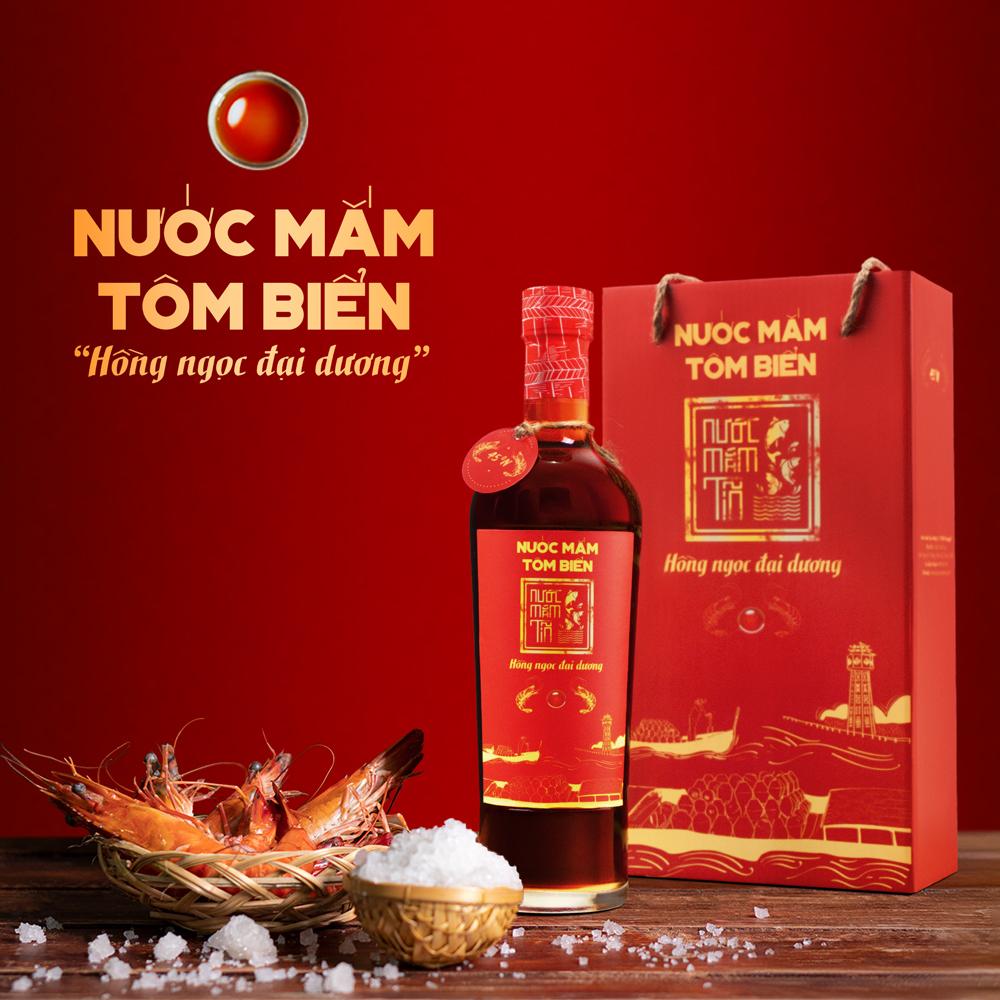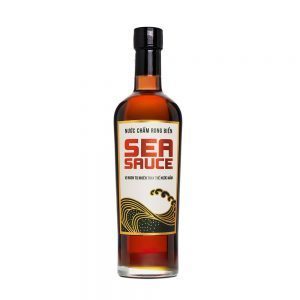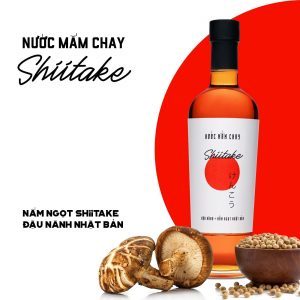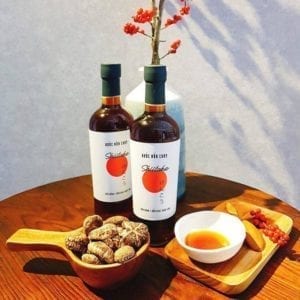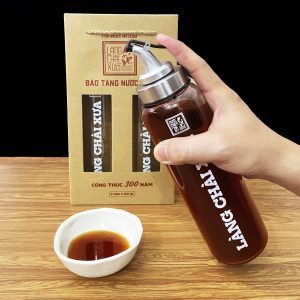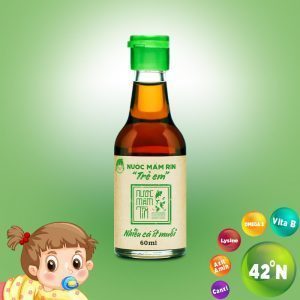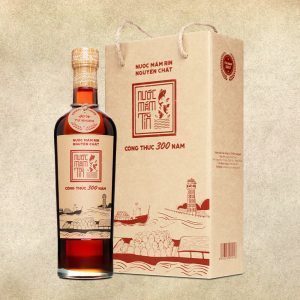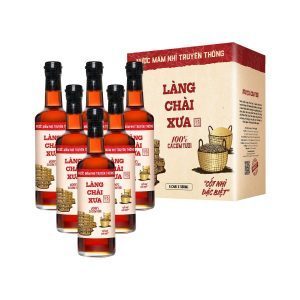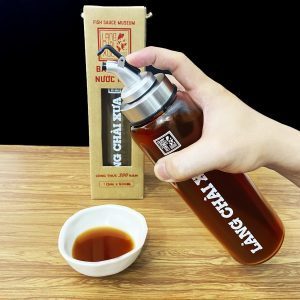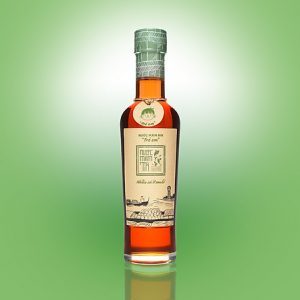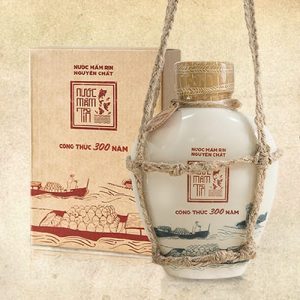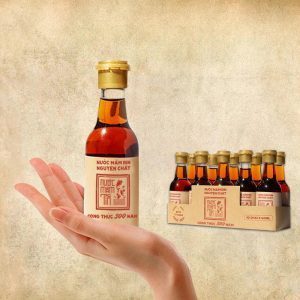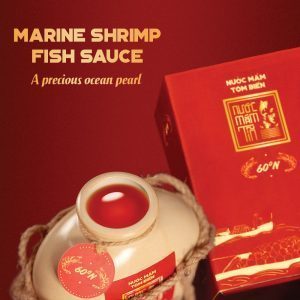Marine Shrimp Fish Sauce – A Unique Product Of Lang Chai Xua
It is common knowledge that fish sauce is made from fresh fish caught naturally from the ocean. However, there are numerous special fish sauces that are not made from fish. In some provinces, which are endowed with abundant and diverse seafood resources, fish sauce is processed and generated from a variety of marine creatures such as squid fish sauce or crab fish sauce. In Lang Chai Xua, skilled craftsmen successfully devised a type of fish sauce made from marine shrimp.
A combination of crimson color from fresh shrimps and the sweetness from shrimp protein contributes to its uniqueness in both taste and appearance. Going through the meticulous process of classifying the best shrimps and brewing with pure salt for 2 long years, shrimp fish sauce reaches the protein content of 24N and is highly condensed with shrimp meat. It can be used in dipping, marinating, or seasoning to flavor the dishes and work up your appetite.
Marine Shrimp Fish Sauce – A Meaningful Gift For Gourmets
Apart from tasty flavor, shrimp fish sauce generates various other significant benefits to the body. It is regarded as a powerful source of vitamins B1, B2, B12, natural micronutrients, and more than 17 essential amino acids without preservatives and additives, which is apparently safe for consumers’ health.
Shrimp fish sauce is highly valuable since its production only falls into the season of marine shrimp fishing. In general, 4 tons of marine shrimp and salt can extract about 300 liters of fish sauce. It means that only 1 liter of fish sauce can be produced from 6kg of fresh marine shrimp. Owing to its scanty output, shrimp fish sauce is regarded as a precious and high-quality product, even satisfying the most demanding guests.
Marine shrimp fish sauce bottle is imported with premium white glass material and an exclusive design inspired by the shape of the old pottery. In particular, the bottle is slightly flat to hold the palm of your hand, convenient for opening the lid and holding the bottle to pour. The main label with square seal is printed on the imported old paper background and the round neck with sub-label is tied with a delicate hand-made rope.
With supreme properties in terms of taste, material, and packaging design, marine shrimp fish sauce deserves to become a popular staple in your kitchen or even an exquisite gift for gourmets.
Annual Shrimp Fishing Season
The annual shrimp season normally occurs from March to October; however, the peak of the fishing season only happens around June and ends in August.
In June, when the shrimp spawning season is at its highest peak, the coastal fishermen eagerly welcome the fishing season with batches full of shrimp.
At 2am, the coastal villagers get up early, rush a bowl of instant noodles or a piece of bread, prepare necessary fishing tools and head to the beach. At three o’clock in the morning, the wharves are bright with light bulbs, noisy with groups of fishermen chatting about the new season, and the starting sound of boat engines.
Heading out about 3-5 kilometers to the sea, the fishermen begin to drop their nets. Each net is about 18-20m long, 7-8m wide, strongly “thrown” down the middle of the deep sea, each batch must travel about 1km. Unlike other types of seafood, marine shrimp live near the shore, hence, the fishing time normally lasts for about one or two day. While working, the fishermen talk to each other about everything from the old tales to everyday life, about their villages, and fishing experiences. Every meal onboard is a hurry, but they enjoy it enthusiastically. The next early morning is an ideal time to collect the nets, so they have to wait a night. The fresh shrimps will be collected from the net when they arrive at the shore.
After a night of fishing, the fishermen together return to the mainland in the early morning, with them are nets full of shrimps. The boats are unloaded, and classification begins. In the peak season, each boat can yield 15 to 20 kg shrimp per night. After shrimps are sorted, they will be sold to traders right on the beach.
Part of them are sold to seafood markets and restaurants. The remainder goes to processed-seafood and fish-sauce brewing businesses. To every fisherman, a heavy net full of shrimps is always a joy to dispel all the hardships at work.

